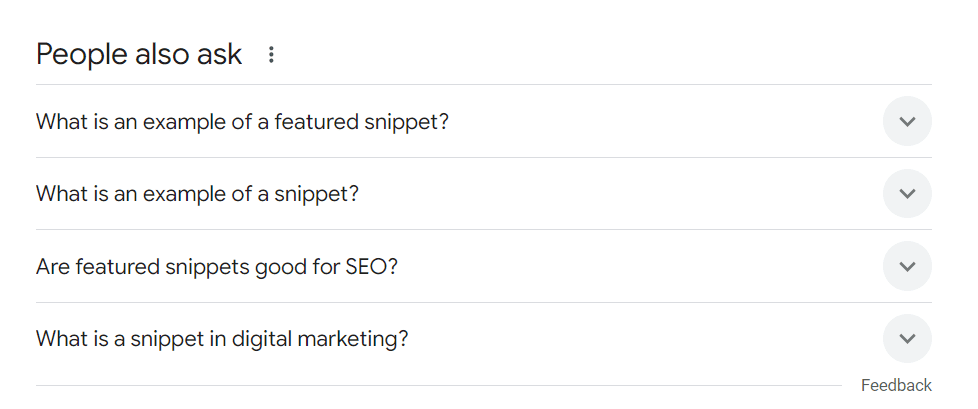You’ve likely noticed a heavy shift to voice search and AI-driven search results, like Google AI Overviews, People Also Ask, and more.
This shift in user behavior has led businesses to optimize their web content for AI-generated responses, a strategy known as Answer Engine Optimization (AEO).
But what exactly is AEO, and how does it differ from Search Engine Optimization (SEO)?
In this post, we’ll explore the world of AEO, its importance, and the strategies you can use to optimize your content for AI-generated responses.
TLDR:
- AEO helps answer engines deliver clear, direct responses.
- SEO helps search engines rank and organize webpages.
- You need both because AEO makes you visible in AI answers and SEO strengthens
- your overall discoverability.
- AEO focuses on structure, clarity, and context.
- SEO focuses on relevance, authority, and optimization across your website.
What Is AEO (Answer Engine Optimization)?
Before we probe the differences between AEO and SEO, let’s define what AEO is.
Definition of AEO
AEO focuses on how search engines use AI to surface direct answers inside their own results.
You optimize AEO when you want your content to show up in AI Overviews, refined answer panels, and other search features that rely on entity understanding.
You give search engines clear structure, accurate context, and strong signals that support their AI systems.
You help them interpret your content so they can pull the right information into those AI-driven sections of the SERP.
Difference between AEO and SEO
Against the backdrop of traditional search engine optimization, AEO is a distinct strategy that targets only AI-generated responses.
Optimization strategies, whether for search engines or answer engines, share similar goals.
But AEO focuses on AI-powered full results vs. items you’ll need to go to websites to read.
While some may argue that AEO is a subset of SEO, the two strategies differ in their approach to query results.
Why Does AEO Matter?
Even if you’re already familiar with SEO, AEO is becoming increasingly important in the digital landscape.
Importance of AEO in Digital Marketing
AEO can help you reach a wider audience, including those who rely on AI-generated responses for research.
And this is no small market. Some estimates indicate that we are already seeing a shift of 10-15% of all searches from traditional search engines to answer engines.
Surely by now, you’ve seen the Gartner forecast that 25% of all search will have moved by the year 2026.
So it’s not the majority yet, nor will it be in a year or two. But 25% is a hefty share nonetheless, so SEO experts all need to stay in front of it.
Benefits of Optimizing for AI Generators
If you manage to properly optimize for AI based search, you stand to increase brand visibility, boost credibility, and even drive more traffic to your website.
In addition, you can ensure that your content is presented in a concise and easily digestible format.
Not only will this make it easy for readers to consume, but AI and snippets will be more of a big deal on the SERPs.
This, in turn, can help establish your brand as an authority in your industry, ultimately driving more conversions and sales.
How to Optimize for SEO AEO
It’s time to take your AEO strategy seriously.
To optimize for answer engines, you’ll need to focus on a few key tactics that will help you appear in AI-generated responses to user queries.
Here is where you can see how AEO and SEO have some overlaps. We’ll discuss that concept later after the following tips.
Consider Search Intent
When you target specific keywords or queries on your site, consider the search intent behind them.
Tailor your content to address that intent, and search engine based AI features will be more likely to use your content.
This is one strategy that will also serve you well on Google, Bing, and other search engines, if you haven’t already started moving in that direction.
They both use AI algorithms to determine intent. This is what we’ve been talking about for years when we refer to semantic SEO.
Optimize for Featured Snippets
Featured snippets are the blurbs that sometimes appear as the first organic result in Google searches.
Here is an example of a “People also ask” featured snippet for the search “what are featured snippets”:

To get your content ranking in these featured snippets, you need to provide short, succinct answers to specific questions.
And that’s exactly what answer engines are looking for.
By optimizing your content for featured snippets, you’ll increase your chances of appearing in AI-generated responses to user queries.
Answer engines favor content that provides simple, straightforward answers to user questions.
So does Google when selecting what to feature in this high-value real estate atop the Search Engine Results Pages (SERPs).
Optimize for Voice Search
Voice-based queries are becoming increasingly popular.
Leading SEO performers are likely already optimizing for voice search.
This is another way you can set yourself up for success on platforms like ChatGPT and Perplexity.
The natural language processing capabilities on these AI engines will absolutely feast on your voice optimized content.
Use Business Directories
Business directories are important for SEO, when managed in the right way.
They are equally important for AEO. AI needs inputs to generate the outputs.
The tools will take note of how often and where your brand / business name is mentioned online.
When asked for recommendations, answer engines will rely on the information you place on directories.
So aside from the Local SEO implications of your NAP and description info, you will want to synch all of this data to feed the answer engines in a similar fashion.
The AEO SEO Connection
To understand how AEO and SEO differ, you first need to recognize their connection.
Similarities Between AEO and SEO Strategies
Between optimizing for AI-generated responses and search engine results, you’ll find that many strategies overlap.
We already covered off several, so this should come as no surprise.
Why AEO is a Subset of SEO
With AEO being a relatively new concept, it’s natural to wonder how it differs or relates to traditional SEO practices.
Given that AEO aims to consume content for AI-generated responses, it’s only logical that it builds upon the foundation established by existing SEO practices.
So bottom line: Many of the things you’re already doing for on-page and local SEO will help you do better with AEO.
And yes, off page SEO might help answer engines find you via referrals. Overall, however, link building and technical SEO are less involved in AEO.
Conclusion: So It’s AEO SEO, or Maybe SEO AEO?
On the whole, you now have a solid understanding of what Answer Engine Optimization is and how it differs from SEO.
As a digital marketing strategy that involves optimizing your web content to appear in AI-generated responses to user queries, it is basically a subset of what we are already practicing.
It’s the second level of search optimization, stacked on top of SEO, and foundational to the next level above: GEO (Generative Engine Optimization) which gets you shown more on LLMs like ChatGPT and Claude.
So if you haven’t tidied up your Directories or started optimizing for things like intent and voice search, you now have a path to success on both types of “engines.”
So don’t be overwhelmed by what new tactics you’ll need to learn for AEO. Odds are, you’re already doing a lot of the right stuff and can easily target both SEO and AEO in tandem.
Need help embracing this faster? Great! We offer Answer Engine Optimization (AEO) Services and Generative Engine Optimization Consulting as well!
AEO vs SEO Podcast Version
Frequently Asked Questions about AEO SEO Differences
Tommy Landry
Latest posts by Tommy Landry (see all)
- Where AI Introduces Risk Into Revenue Planning - February 19, 2026
- AI Is Already Influencing Your Forecasting. Do You Know Where? - February 18, 2026
- AI -Driven Discoverability Presentation at AIMA (January 2026, Full Video) - February 17, 2026





